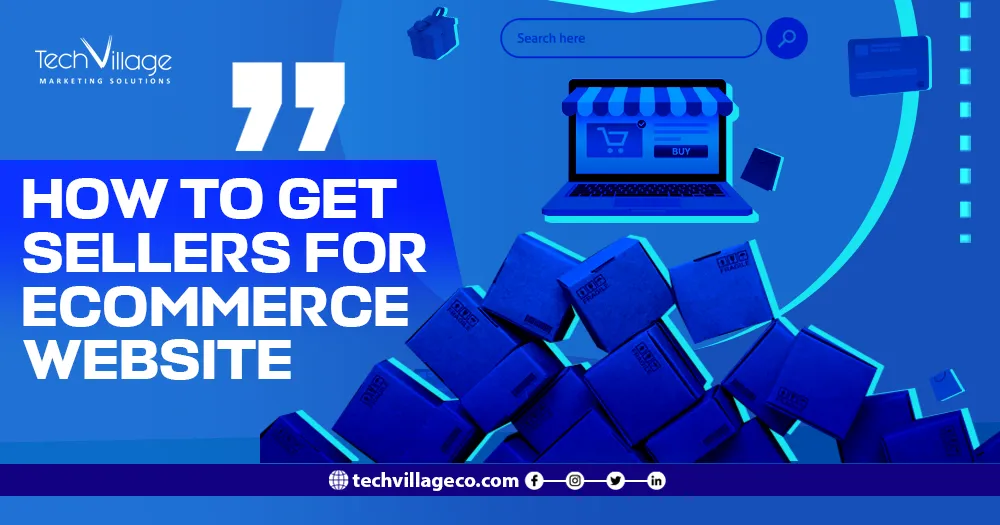If you are wondering about how to get sellers for ecommerce website, here is the answer. To successfully gather sellers for your eCommerce website, a strategic and systematic approach is essential. From targeted marketing efforts to creating an appealing platform, engaging with potential sellers, and establishing trust, this guide will outline effective methods for how to get sellers for ecommerce website.
Table of Contents
ToggleWhat are the 3 types of seller?
In the realm of how to get sellers for ecommerce website, sellers can generally be categorized into three main types based on their ownership and scale of operation:
1- Individual sellers or sole proprietors:
These are individuals who operate their own online businesses. They might create and sell their products, offer services, or act as resellers of products.
Individual sellers typically manage all aspects of their business independently, including inventory, marketing, and customer service.
2- Small to medium-sized enterprises (SMEs):
SMEs in e-commerce often represent small businesses or medium-sized enterprises that operate online. These entities have a team and a more established structure compared to individual sellers.
They might manufacture their products, source from suppliers, or act as intermediaries in the supply chain.
3- Large retailers or corporations:
Large retailers or corporations are prominent players in the e-commerce landscape. These entities are typically well-established companies with significant resources and a wide range of products or services.
They may have an extensive offline presence as well and utilize e-commerce platforms to reach a broader audience and enhance their market reach.
These categorizations help illustrate the diversity and varying scales of how to get sellers for ecommerce website, ranging from individual entrepreneurs to substantial corporate enterprises.
Read also: Ecommerce Homepage Design.
How to get sellers for ecommerce website
Speaking of how to get sellers for ecommerce website, this involves a strategic approach to attract and onboard businesses or individuals interested in selling their products or services on your platform.
- Understand Your Target Market: Understanding the target market helps tailor your approach and attract relevant sellers.
- Build a User-Friendly Platform: Create an appealing, easy-to-use e-commerce website that showcases its advantages to potential sellers. A clear and intuitive interface encourages sellers to choose your platform.
- Develop Seller-Friendly Policies: Establish transparent and seller-friendly terms, conditions, and policies. Highlight benefits like competitive commission rates, payment processing, and support services for sellers.
- Marketing and Outreach: Utilize marketing strategies to reach potential sellers.
- Offer Incentives: Provide incentives such as reduced fees for the initial period, promotional support, or enhanced visibility to attract sellers to your platform.
- Engage with Sellers Directly: Actively engage with potential sellers through direct communication, webinars, or workshops. Address their concerns and explain how your platform can benefit their business.
- Leverage Networking and Partnerships: Collaborate with industry influencers, trade associations, or existing sellers to promote your platform and attract more sellers through referrals.
- Optimize SEO for Seller Keywords: Ensure your website is optimized for relevant keywords potential sellers might use in search engines. This helps increase visibility and attract organic traffic from sellers.
- Provide Seller Education and Support: Offer training materials, guides, and customer support to help sellers navigate and utilize your platform effectively. A well-informed seller is likely to stay and grow on your platform.
- Streamline Onboarding Process: Simplify the onboarding process for sellers by providing an intuitive registration interface and step-by-step guidance for setting up their store and listing products.
- Collect and Showcase Seller Testimonials: Display testimonials or success stories from existing sellers on your platform to build trust and credibility among potential sellers.
- Solicit Feedback and Iterate: Gather feedback from sellers to understand how to get sellers for ecommerce website. Continuously iterate and enhance your platform based on this feedback to create a better seller experience.
Note: by implementing these strategies and remaining proactive in engaging potential sellers, you can attract a diverse range of sellers to your e-commerce platform and build a thriving online marketplace.
Read also: Best Shopify Ecommerce Websites.
Why are online market so competitive?
In addition to how to get sellers for ecommerce website. Online markets are highly competitive due to several factors that have reshaped the business landscape, so according to tech village, we can summarized this importance in the following points:
1- Global reach:
The internet allows businesses to reach a vast global audience. As a result, companies from different regions compete for the attention and preferences of a potentially unlimited customer base.
2- Low entry barriers:
Setting up an online business is relatively affordable compared to traditional brick-and-mortar setups.
This ease of entry encourages a multitude of startups and entrepreneurs to enter the market, intensifying competition.
3- Consumer demand:
The increasing preference for online shopping has spurred a high demand for e-commerce platforms.
Consumers seek convenience, variety, and competitive prices, driving businesses to meet these demands and stand out in a crowded market.
Here’s: Drop Shipping Websites Through Shopify.
4- Technology advancements:
Rapid advancements in technology, including website development, payment gateways, and logistics, make it easier for businesses to establish an online presence. This accessibility further fuels the growth of the online market.
5- Agility and adaptability:
In addition to how to get sellers for ecommerce website. Online businesses can quickly adapt to changing market trends and consumer behavior.
Allowing them to respond faster to shifts in demand, pricing, or marketing strategies. This agility keeps the competition fierce and ever-evolving.
6- Marketing and advertising tools:
Digital marketing tools provide targeted and cost-effective advertising options, enabling businesses of all sizes to compete for consumer attention.
Social media, search engine optimization, pay-per-click advertising, and influencer marketing are just a few examples of effective online marketing strategies.
Conclusion
In conclusion, recruiting sellers for your eCommerce platform involves a blend of marketing, effective communication, and building a reliable and enticing marketplace.
By understanding how to get sellers for ecommerce website, showcasing the benefits of your platform, and fostering strong relationships, you can establish a thriving community of sellers, ensuring the growth and success of your eCommerce website.
FAQ
What is a seller in e-commerce?
A seller in e-commerce is an individual, business, or entity that offers products or services for sale through an online platform or electronic commerce (e-commerce) website. Sellers use e-commerce platforms to list their products, set prices, manage inventory, process transactions, and interact with customers.
What is e commerce seller meaning?
An eCommerce seller refers to an individual, business, or entity that offers products or services for sale on an electronic commerce (eCommerce) platform. These sellers utilize online platforms to display and market their products, manage transactions, and interact with customers.

 AR
AR




